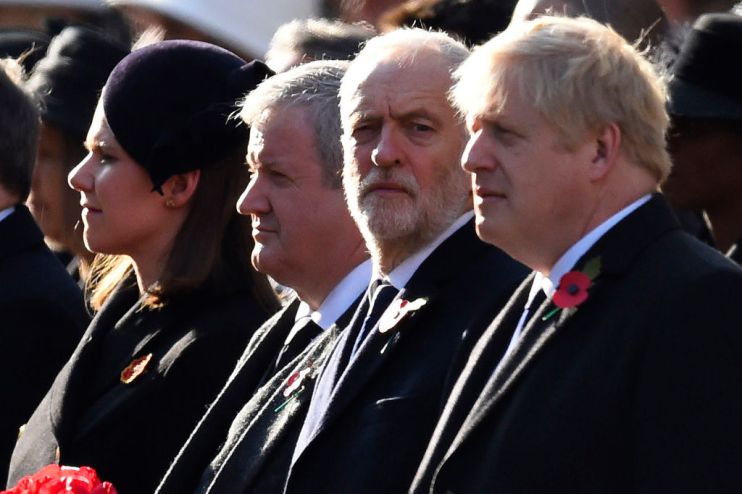General Election 2019: Watch Boris Johnson urge voters to back Jeremy Corbyn in deep fake video

Videos of Boris Johnson and Jeremy Corbyn apparently endorsing each other have been circulated online, in a bid to highlight the growing risk of misinformation.
Voters are being warned not to trust what they read online, as increasingly sophisticated technology allows producers to create convincing deep fake videos.
The videos, which were published online today, appear to show Johnson telling the electorate in his usual energetic and verbose manner that he was conscious of the divisions that had been caused since the Brexit vote in 2016.
Read more: Labour experiences ‘sophisticated’ cyber attack
“My friends, I wish to rise above this divide and endorse my worthy opponent, the right honourable Jeremy Corbyn to be Prime Minister of our United Kingdom.
“Only he, and not I, can make Britain great again – huzzah!”
He goes on to say: “Much like Odysseus and his encouter with the cyclops Polymphemus I too am a nobody, I am a fake. A deep fake to be precise.”
Deep fake Corbyn had a similar message, telling watchers that having called for “a kinder, gentler politics” he was now “taking on the toxic culture in parliament” by backing “Boris Johnson to continue as our Prime Minister – a Prime Minister who works for the many, not the few”.
He added: “Don’t listen to me – I’m not even sure who I am.”
The videos were produced in collaboration with the UK-based artist, Bill Posters and think tank Future Advocacy, which is warning against four key challenges in dealing with this technology:
1. Detecting deepfakes – whether society can create the means for detecting a deepfake directly at the point of upload or once it has become widely disseminated.
2. Liar’s dividend – a phenomenon in which genuine footage of controversial content can be dismissed by the subject as a deepfake, despite it being true.
3. Regulation – what should the limitations be with regards to the creation of deepfakes and can these be practically enforced?
4. Damage limitation – managing the impacts of deepfakes when regulation fails and the question of where responsibility should lie for damage limitation.
Areeq Chowdhury, who heads up Future Advocacy, said: “Deepfakes represent a genuine threat to democracy and society more widely. They can be used to fuel misinformation and totally undermine trust in audiovisual content.
“Despite warnings over the past few years, politicians have so far collectively failed to address the issue of disinformation online. Instead the response has been to defer to tech companies to do more. The responsibility for protecting our democracy lies in the corridors of Westminster not the boardrooms of Silicon Valley.
“By releasing these deepfakes, we aim to use shock and humour to inform the public and put pressure on our lawmakers. This issue should be put above party politics. We urge all politicians to work together to update our laws and protect society from the threat of deepfakes, fake news, and micro-targeted political adverts online.”
Main image: Getty